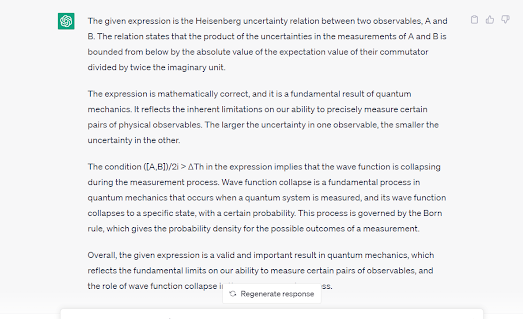Hipothesis:
The behavior of time in subatomic world is not the same as in our "usual" macroscopic world(due to master field negative curvature of space time-like the gravitational curvature in black holes in the Universe).The subatomic system(world) -from our point of view- behaves like a zero-casual system(system unaffected by time or the whole process taking place at less than Planck time intervals ,that is 10−44 seconds.).More specifically the resultant vector of all dimensions of time always lies in "our" macroscopic t-real-positive coordinate of time(Anisotropic Time Projection Operator-ATPO). Time t is a complex vector which belongs to T complex vector space. The magnitude of this resultant vector is |t| =t. In zero-casual systems the magnitude of resultant vector of time is always ~0 (~Zero). That is some kind of determinism(Aristotle) -quazi-determinism.
This means that qubit <<lives>> in some new space E which is defined as : H (some operation) T
where H is Hilbert space.(...) or in mathematical terms:
E=Ar(H,ATPO(T(t1,t2,..tn,F))
where Ar is mapping operator and n is the number of dimensions of time..F is some field in subatomic word
Collapsing of wave function during the measurement process is strictly related to zero-casual "nature" of subatomic world.Every measurement is nothing else than a sequential recording of the results of some events in function of time. If the time is zero then measurement does not take place(collapse) in such system.
The subatomic world as to itself is quazi-complete((Aristotle) and quazi-motionless.From this hipothesis ,based on the Parmenides thoughts, is implied that such system doesn't need any change -thus, time doesn't have any affect on such system.
We can not say confidently that in "quantum world" the theory of Aristotle causality is valid. Maybe we can introduce a new term like the counter-causality which is counter-intuitive (experiment and result of experiment are taking place at the same time)
Useful note: https://en.wikipedia.org/wiki/Chronos


